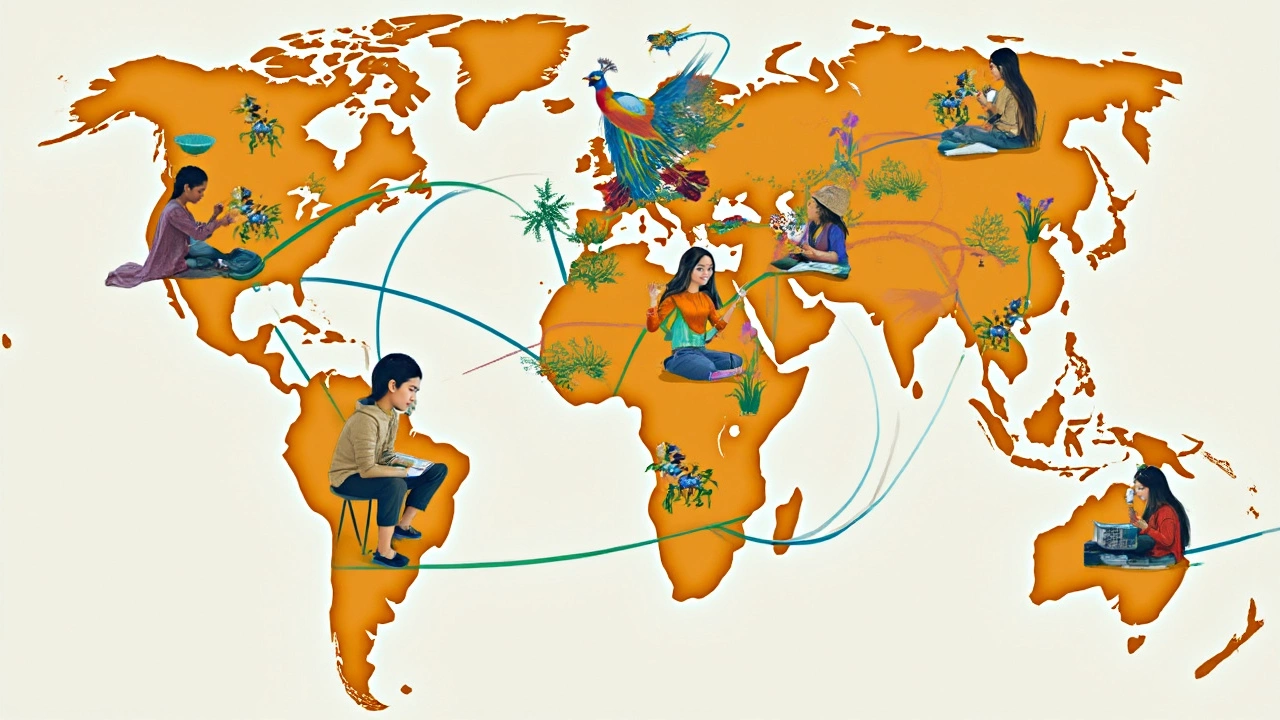Global Reach in Education: Why It Matters
Ever wondered how a student in a small town can access the same knowledge as someone in New York or Tokyo? That’s the power of global reach. When education breaks borders, you get more choices, fresh ideas, and a chance to compete on a bigger stage. It’s not just about fancy universities abroad – it’s about every tool that lets you learn from anyone, anywhere.
Why Global Reach Matters for Students
First off, a wider view helps you make smarter decisions. Imagine you’re choosing a career path. Seeing how the same job looks in different countries can reveal salary gaps, skill demands, and growth trends you’d miss if you only looked locally. Second, exposure to varied teaching styles makes you adaptable. A lecture from an Indian professor, a webinar from a US startup, and a tutorial from a European open‑source community each bring a unique flavor. Mixing those styles builds a flexible mind ready for change.
Third, global reach cuts costs. Free online courses, scholarships, and peer‑to‑peer tutoring let you skip pricey textbooks or travel. For example, the post “Can You Learn Coding for Free? 2025 Roadmap” shows how you can become a developer without spending a dime. When you combine that with a global mindset, you’re not just learning a skill – you’re learning how to learn anywhere.
Tools and Resources to Boost Your Global Learning
So, how do you tap into this worldwide network? Start with platforms that host free or low‑cost courses – think MOOCs, YouTube channels, and community forums. Look for courses that have subtitles or community translations if language is a barrier. Next, join online study groups. A Slack channel for MBA hopefuls, a Discord server for coding newbies, or a WhatsApp group for NEET aspirants can give you real‑time feedback and motivation.
Don’t forget about virtual exchange programs. Many universities now offer short‑term projects where you collaborate with peers from other continents. These experiences add a line to your resume that says, “I’ve worked across cultures.” Finally, keep an eye on global education trends. Articles like “USA vs India: A Deep Dive into Which Education System Works Better” help you compare systems and pick the best fit for your goals.
Remember, global reach isn’t a buzzword – it’s a practical toolkit. By mixing free resources, peer networks, and cross‑border projects, you can turn a local classroom into a world‑class learning hub. Start small: pick one free course from a country you’re curious about, join its discussion forum, and apply one new idea to your studies. Before you know it, the world becomes your campus."
Is CBSE Only in India? Exploring Global Reach
The article delves into the geographical reach of the Central Board of Secondary Education (CBSE), a prominent education board in India. It explores whether CBSE is limited to India or if it has a broader presence abroad. Alongside, it uncovers CBSE’s curriculum features that are attracting students globally. You'll learn interesting facts and practical tips about the CBSE syllabus, which is shaping education worldwide. Discover how CBSE isn't just about academics but also fosters holistic development.
